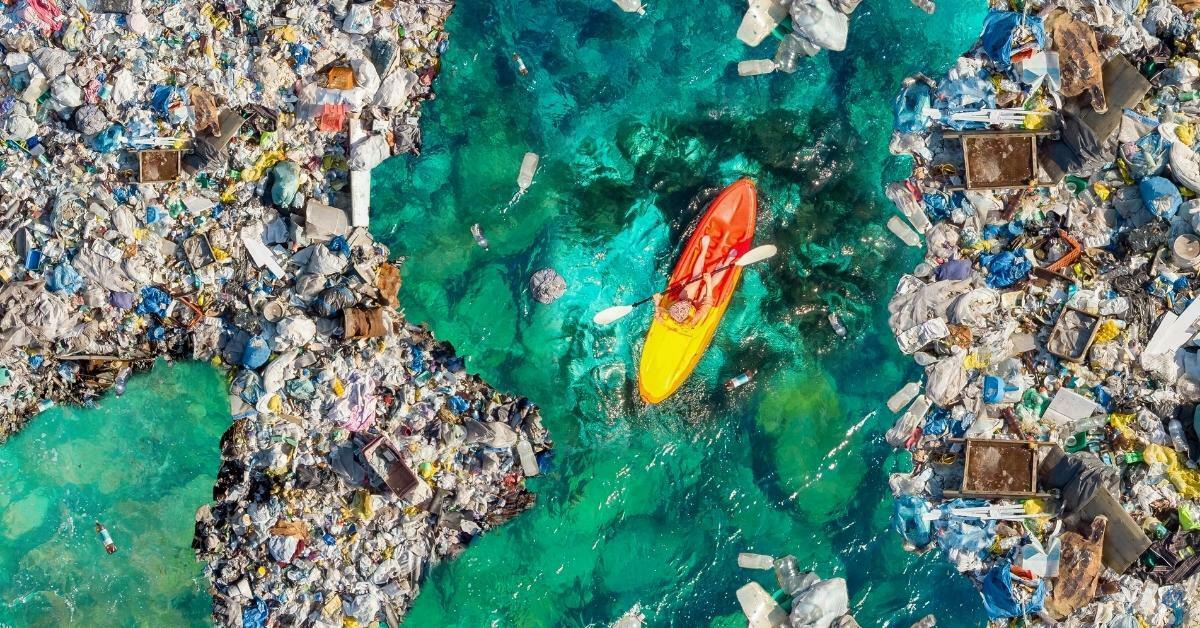
Published
August 24, 2022
Tags:
Plastic is a threat. This is something that experts have long been discussing, time and again. But do you really know how deep the problem runs? In this article, we will talk about the full effects of single-use plastic on the environment and why it is an issue that we should take action on now.
But before that…

What Do We Mean By Single-Use Plastics?
Before we dive deep into the negative impacts of plastic, let’s define first what single-use plastic means.
These forms of packaging are, from their name, rarely recyclable after a single use. They are manufactured for the sake of convenience rather than repeated use and durability.
Examples include shampoo wrappers, soda bottles, straws, and product packaging that do not have biodegradable materials. Filipinos reportedly use about 60 billion shampoo sachets alone in a year according to a 2020 survey.

What are the Effects of Single-Use Plastic on the Environment?
The damage that single-use plastics cause the environment is more complex than what the majority of the public knows. The list below breaks down the real impact of this problem on the world we’re living in.

1. Single-use plastics lead to the endangerment of wildlife
The impact of plastic usage goes beyond overloading our landfills and endangering our wildlife. We all know the tip of the iceberg but rarely the science of it. For one, do you know how the plastic pollution impacts sea creatures? They ingest what experts call microplastics, which are broken-down form of this kind of packaging.
In fact, data from BiologicalDiversity.org says that 34% of leatherback sea turtles die because of plastic ingestion alone. Even if not ingested, they can still affect wildlife who get stuck, caught, or trapped in them.
They’re not the only animals that get affected by plastic pollution. Whales, fish, seabirds, and seals also alarmingly bear the brunt of our wastes. The other animal population that thoughtlessly consumes microplastics as a result of the widespread crisis? Humans.

2. They also contribute to climate change
Another one of the many negative effects of single-use plastic on the environment is climate change. Plastics are made with the use of fossil fuels, which means that their manufacturing and production alone cause significant emissions of greenhouse gasses.
According to reports, the extraction of these fossil fuels and their transportation to factories alone already produces an average of 12.5 to 1.5 million metric tons of greenhouse gasses.

3. Plastic pollution isn’t an isolated situation; it results in soil and water pollution
Of course, we cannot forget the fact that plastics destroy our planet from the inside. Whenever this type of packaging ends up in our landfills, they usually take a thousand years to decompose. During this time, they leach toxic substances into our soil and water.
Other than being a health hazard to humans who use these resources, the transfer of microplastics in these bodies can also have long-term negative effects on their ecosystems.

4. It is a major health hazard
Exposure to single-use plastic is also connected to health problems. The issue specifically focuses on the usage of bisphenol A, or BPA. This is an industrial chemical used to make certain plastics and resins. Recent studies have proven it to affect behavior, brain development, and even reproductive problems in both men and women. When not produced properly, plastics can also cause poisoning and cancer.
What’s alarming is that microplastics are now present everywhere. We get them from the air we breathe, the water we drink, and down to the food we eat. Reports say that we humans eat at least a credit card worth of plastic every week.

4. It perpetuates the “throwaway culture”
Other than the effects of single-use plastic on the environment, they also have an impact on the behavior and overall culture of the people who use them.
Plastics are a popular choice of many because they are cheap. They also breed the behavior of excess because they are easily disposable. This kind of mindset is the root cause of why our landfills keep filling up with these products. With demand at an all-time high to match the abundant supply, it gets harder by the day to find feasible solutions.

What Can We Do About the Effects of Single-Use Plastic on the Environment?
The effects of single-use plastics on the environment are clear, so what should you do then as a business? One of the misconceptions of many entrepreneurs is that it is expensive to start an eco-friendly business because alternative packaging to plastic costs more than its cheaper counterparts.
This, however, is something that is no longer true, especially with more and more sustainable businesses in the Philippines focusing on offering eco-friendly options.

Shifting to eco-friendly alternatives to plastic, like the ones we offer here at Oikos Sustainable Solutions, is a small but powerful step to address the problem that single-use plastics cause.
Oikos offers biodegradable packaging for business use that is 100% plant-based, safe to use, and made affordable to promote wider consumption of better alternatives. We are particularly proud of our packaging solutions made with cassava and corn which are at par with the quality of traditional and harmful plastics.
Are you ready to make the shift and help the environment? Shop for our products today.
Facebook
Linkedin
Twitter
Pinterest
